Episodes
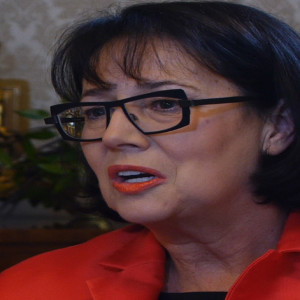
Sunday Dec 23, 2018
Janet Austion: Her Majesty's Representative in British Columbia
Sunday Dec 23, 2018
Sunday Dec 23, 2018
Ep 218 Janet Austin
Her Majesty’s Representative in British Columbia
No matter which type of government you live under in 15 of the Commonwealth nations that recognize the Queen of England as their monarch, there is a Governor General nationally and a Lieutenant Governor regionally. The role is that of de facto head of state – it’s primarily ceremonial until it isn’t.
In the 2017 British Columbia provincial election, you will recall the Liberals won 43 seats, the NDP won 41 and the Green Party won 3 seats. Here’s where the Lieutenant Governor transitioned from a ceremonial role to a formal one – one that determined the outcome of the election.
The LG at the time was Judith Guichon and she became the final vote in the 2017 election. Former Premier Christy Clark asked the LG to let her form a government with a party that was one seat short of the majority needed. Ms. Guichon turned down the request and offered Opposition Leader John Horgan, who in an alliance with the Green Party represented a majority, to form a government.
In March of 2018 Janet Austin, the former CEO of the YWCA was asked to take over the role: a position you cannot apply for, a demanding position that requires the LG’s presence on behalf of the government throughout the province. As LG, Ms Austin reports to the Queen.
We invited BC’s Lieutenant Governor Janet Austin to join us for a Conversation That Matters about the role of the Queen’s representative in British Columbia and the objectives she has set for her term.
Simon Fraser University’s Centre for Dialogue presents Conversations That Matter. Join veteran Broadcaster Stuart McNish each week for an important and engaging Conversation about the issues shaping our future.
Please become a Patreon subscriber and support the production of this program, with a $1 pledge https://goo.gl/ypXyDs
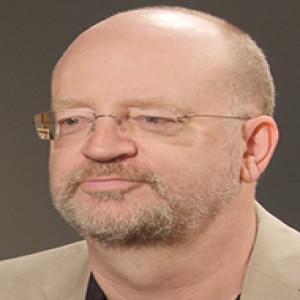
Saturday Nov 10, 2018
Bill Tieleman - Proportional Representation - Part 1 - No
Saturday Nov 10, 2018
Saturday Nov 10, 2018
Ep 216 Bill Tieleman
Proportional Representation - Part 1 - No
For the third time in the past 15 years, British Columbians are participating in a referendum to change the way the people of the province elect a government. In 2005, the Single Transferable Vote (or STV) was put to the people in a referendum that ran concurrently with the provincial election.
The referendum required a super-majority that included approval of 60% of the voters overall and simple majorities in 60% of the 79 districts in order to pass. It fell short of the required 60% overall by an extremely slim margin. Four years later, STV was soundly defeated.
The current government says it’s time to revisit proportional representation. It has scrapped the STV method and is providing voters with four options, with a 50 plus 1 threshold to pass. The first is to simply keep the current system.
If, however, you think it’s time to change the way we elect the people who govern the province, you are then asked to rank your pick from three options. Bill Tieleman of the No BC Proportional Representation Society is adamant that the referendum proposal is a bad idea. He campaigned against it in ‘05, in ‘09, and he’s once again warning voters against proportional representation.
We invited Bill Tieleman to join us for a Conversation That Matters about the case for No when it comes to proportional representation.
Simon Fraser University’s Centre for Dialogue presents Conversations That Matter. Join veteran Broadcaster Stuart McNish each week for an important and engaging Conversation about the issues shaping our future.
Please become a Patreon subscriber and support the production of this program, with a $1 pledge https://goo.gl/ypXyDs
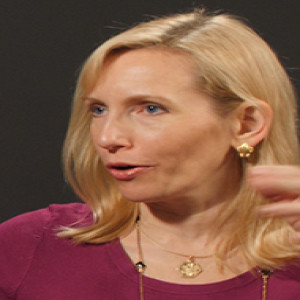
Saturday Nov 10, 2018
Saturday Nov 10, 2018
Ep 215 Nicolee Ambrose & Marc Hetherington
Understanding American Viewpoints on Socio-Economic Issues
In 2016, as Americans went to the polls, the top voting issues for Republicans were the economy, terrorism, immigration, foreign policy and health care. Democratic voters rallied around the economy and terrorism as well. However, their point of view on those topics differed significantly from GOP supporters. The other top Democratic issues were racial mistreatment, gun control and the environment.
Two years into the Trump administration, Americans are heading into midterm elections. The results could shift the balance of power in both the House and the Senate. Currently the Republicans hold the balance of power in both chambers.
What issues are American voters wrestling with currently? The economy appears to be on fire, terrorism is slipping from the headlines. Trump has taken on China, Europe, Canada and Mexico in trade and he is getting much of what he wanted. He has already appointed two judges to the Supreme Court.
So, what next? What issues are front and centre? Crime, the unequal distribution of wealth, poverty, access to education and health care, along with the rising cost of living all are ever present. But are they the lightning rod issues that will tip the results of an election?
We invited both Nicolee Ambrose, the newly elected Republican National Committeewoman, and Marc Hetherington, a political scientist at the University of North Carolina, to join us for a Conversation That Matters about the issues they say will play important roles in how Americans cast their ballots this November.
Simon Fraser University’s Centre for Dialogue presents Conversations That Matter. Join veteran Broadcaster Stuart McNish each week for an important and engaging Conversation about the issues shaping our future.
Please become a Patreon subscriber and support the production of this program, with a $1 pledge https://goo.gl/ypXyDs
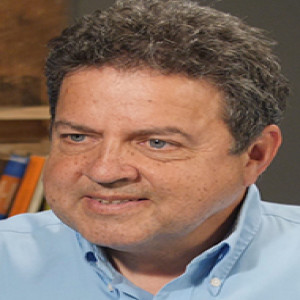
Saturday Nov 10, 2018
Andrew Trites - Southern Resident Orcas are Picky Eaters
Saturday Nov 10, 2018
Saturday Nov 10, 2018
Ep 214 Andrew Trites
Southern Resident Orcas are Picky Eaters
The southern resident orca whale population is front and centre in the fight against increased oil tanker traffic. The majestic toothed whale is a member of the oceanic dolphin family. They are also known as killer whales because as a species they will hunt and eat fish, marine mammals; they’ve been known to attack baleen whale calves and even sharks and adult whales.
While, this is true of other orca populations, it is not so with the southern resident population that migrates into the Salish Sea for a couple of months a year. This particular pod has a very limited diet. In other words, they are picky eaters. They really like chinook salmon to the exclusion of just about everything else. They don’t eat harbour seals; they’re not interested in sea lions like their cousins the transient population. Nope, it’s chinook they want and chinook, unfortunately, are a salmon population in distress.
The Salish Sea Marine Survival project is examining a wide range of factors that have contributed to the decline of chinook, coho and steelhead – factors that include eelgrass depletion, a reduction in the volume of phytoplankton and zooplankton, algae blooms, spawning ground distribution as well as great blue herons, harbour seals and sea lions who also love to dine on chinook.
According to Andrew Trites, a professor at UBC’s Marine Mammal Research Unit, our beloved orcas are in danger because they won’t eat other species of salmon, nor will they hunt and eat harbour seals or sea lions. In other words, they are thin due to a very narrow diet.
Add in the disproportionate number of males to females, and the prognosis for the southern resident orca is not good.
We invited Andrew Trites to join us for a Conversation That Matters about what is happening with the Southern Resident Orca Whale population.
Simon Fraser University’s Centre for Dialogue presents Conversations That Matter. Join veteran Broadcaster Stuart McNish each week for an important and engaging Conversation about the issues shaping our future.
Please become a Patreon subscriber and support the production of this program, with a $1 pledge https://goo.gl/ypXyDs
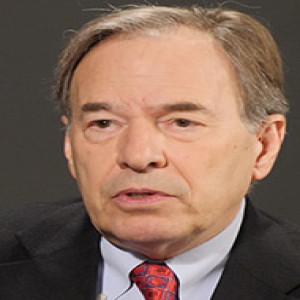
Saturday Nov 10, 2018
Bruce Blair - The Nuclear Threat is once again on the Rise
Saturday Nov 10, 2018
Saturday Nov 10, 2018
Ep 213 Bruce Blair
The Nuclear Threat is once again on the Rise
Are we once again on the cusp of nuclear catastrophe? It’s a concern that hung over the entire world like the “Sword of Damocles” for half a century. At the peak in 1980, there were more than 61,000 nuclear weapons in the world.
Former US President Ronald Reagan and Soviet General Secretary Mikhail Gorbachev recognized the threat two powerful nations on hair trigger alert posed. Between them they had enough stored energy to destroy the world. In October 1986, in Reykjavik, Iceland, they began talks that have led to a series of arms reduction agreements.
The latest, the “New Start” agreement, will expire in February of 2021. Despite the reduction in nuclear arms – the explosive potential – in the hands of eight nations that control just shy of 15,000 nukes, is deadly.
Bruce Blair, of the Woodrow Wilson School of Public and International Affairs says, “There are two elements that make the current situation so dangerous: 1. Almost no one is paying attention and 2. Russia and the USA maintain a rapid response protocol.”
During the Cold War, the launch protocol was never fully activated. Over the past 10 years, however, Blair says, “On multiple occasions, there have been ambiguous ballistic threats that rose to the level of presidential participation and under Presidents Bush and Obama, the launch protocol was activated.” In each case, cooler heads prevailed and what was believed to be imminent danger turned out to be a false alarm.
We invited Research Scholar Bruce Blair to join us for a Conversation That Matters about the rising risk nuclear weapons and response protocols pose.
Simon Fraser University’s Centre for Dialogue presents Conversations That Matter. Join veteran Broadcaster Stuart McNish each week for an important and engaging Conversation about the issues shaping our future.
Please become a Patreon subscriber and support the production of this program, with a $1 pledge https://goo.gl/ypXyDs
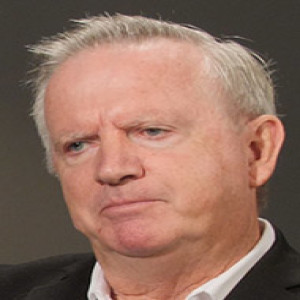
Saturday Oct 13, 2018
Patrick Condon: LRT - Why is it taking so long?
Saturday Oct 13, 2018
Saturday Oct 13, 2018
Ep 212 Patrick Condon
Light Rail Transit - Why is it taking so long?
LRT is like deja vu all over again. Do we want it? Do we need it? Why would we want it and what are its benefits? Light rail transit is an idea whose time came and went, and is trying to make a comeback.
Vancouver used to have it: back then it was called the streetcar. As a transit system, it served the city well. Set out as a grid, it allowed riders to easily get from point A to point B – a grid that has helped shape the creation of many of the city’s favourite neighbourhoods.
Streetcars put people on the streets and along the way injected life into Kerrisdale, Dunbar, Kits, Cambie, Main, Granville, Kingsway and Hastings Streets. From 1890 to 1958, BC Electric built and operated interurban trains and streetcar lines throughout Metro Vancouver and into the Fraser Valley.
By the 1940s, the Lower Mainland followed the rails-to-rubber trend that was sweeping throughout North America. Buses – some were electric, most were diesel powered – replaced the streetcar.
Four decades later, SkyTrain was introduced and it has helped move people over long distances and quickly. However, for some urban planners, SkyTrain is not seen as a community builder. Rather, they see it as an expensive people mover.
Patrick Condon says LRT compliments a larger transit network, it saves taxpayers money and it puts people on the street, and has the potential to shape the communities it serves – all of which begs the question: why has it taken so long for us to get back to a good idea?
We invited one of LRT’s strongest local advocates, urban designer, planner and professor Patrick Condon to join us for a Conversation That Matters about why it’s time to turn our attention away from SkyTrain and back to LRT.
Simon Fraser University’s Centre for Dialogue presents Conversations That Matter. Join veteran Broadcaster Stuart McNish each week for an important and engaging Conversation about the issues shaping our future.
Please become a Patreon subscriber and support the production of this program, with a $1 pledge https://goo.gl/ypXyDs
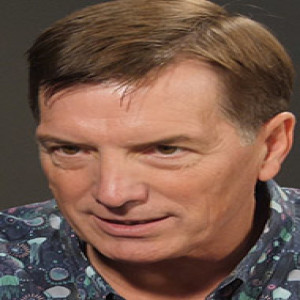
Saturday Oct 13, 2018
John Neate: Succeeding in the Complex World of Coffee
Saturday Oct 13, 2018
Saturday Oct 13, 2018
Ep 211 John Neate
The complex world of coffee
Here’s an idea: why not open a coffee shop? Heck, why not a chain of coffee shops? After all, how hard can it be? You buy coffee that’s cheap, you brew it; that’s easy and you watch the money roll in!
With so many designer coffee shops, you’d think it was easy. That is, until you look behind the counter and start to work your way through the myriad rules and regulations that stand in the way of simply brewing coffee and selling it.
Fair trade coffee: is that organic? Does it mean it’s better coffee? The answer is no, but it’s a designation you have to be aware of – a designation that has nothing to do with taste or organics. And when it comes to organic coffee, where do you get that from and why does it cost so much?
Did you know Brazil is the number one coffee producing country in the world? Did you know the best coffee is grown above the 1,2oo-meter level on the warmer side of the mountain with three levels of canopy? Oh, and there has to be birds but not bugs. Birds are good, bugs are bad.
We invited John Neate of JJ Bean to join us for a Conversation That Matters about the amazingly complex world of owning, operating and succeeding in the competitive world of coffee.
Simon Fraser University’s Centre for Dialogue presents Conversations That Matter. Join veteran Broadcaster Stuart McNish each week for an important and engaging Conversation about the issues shaping our future.
Please become a Patreon subscriber and support the production of this program, with a $1 pledge https://goo.gl/ypXyDs
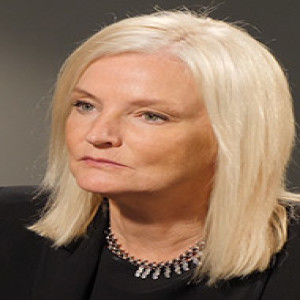
Thursday Sep 27, 2018
Anne McMullin: In Search of Real Estate Solutions
Thursday Sep 27, 2018
Thursday Sep 27, 2018
Ep 210 Anne McMullin
In Search of Real Estate Solutions
The never ending saga of real estate woes continues unabated. Provincial and City governments at every turn continue to mess it up. Home ownership and home rental is getting harder to acquire. At last estimate, the vacancy rate on rental properties was between 0.3 - 0.9%, making it next to impossible to get affordable rental housing.
New homes are equally difficult to purchase especially in the mid-range. That’s homes with three bedrooms – and forget a new three-bedroom and den. This is forcing a paradigm shift in thinking about what is a mid-range home.
Density is another issue; we’ve built transit lines and, in many areas, we’ve restricted density around stations that are under-utilized because they are zoned for single-family homes.
There is a chorus of voices that cry out for more development. Properties developers say they’d happily build if only they could get through the stifling permit process – a permitting process that is slow and has fees that are an upward moving target. Fees that insure the building of rental housing doesn’t make sense. Fees that are adding up to $200,000 to new homes and in doing driving up prices, the very thing governments say they want to decrease.
We invited Anne McMullin of the Urban Development Institute to join us for a Conversation That Matters about strategies she says could go a long way to relieve the pressure on the Greater Vancouver housing market.
Simon Fraser University’s Centre for Dialogue presents Conversations That Matter. Join veteran Broadcaster Stuart McNish each week for an important and engaging Conversation about the issues shaping our future.
Please become a Patreon subscriber and support the production of this program, with a $1 pledge https://goo.gl/ypXyDs
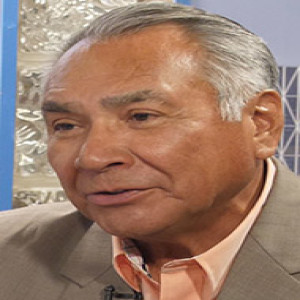
Thursday Sep 27, 2018
Joe Dion: Can Canada's First Nations Save the Resource Industry?
Thursday Sep 27, 2018
Thursday Sep 27, 2018
Ep 209 Joe Dion
Can First Nations Save Canada’s Resource Industries?
The Kinder Morgan pipeline, like 263 court decisions before it, went in favour of the First Nations that opposed the project. One court decision after another is shaping the way Canada can and does develop its resources. The failure of governments and corporations to embrace First Nations as full partners is putting the brakes on development and it is impacting Canada’s reputation as an investment environment.
Joe Dion, the CEO of the Frog Lake First Nation Energy Resource Corporation has a plan – a plan he shared with Prime Minister Justin Trudeau, a First Nations Energy Strategy framed as a treaty between the Government of Canada and indigenous peoples. A treaty that will reopen the door to resource development.
To do so, he says it’s time to create ownership opportunities that provide First Nations access to economic opportunities that will create ownership, employment, funds for education and clean water, and will combat poverty.
We invited Joe Dion, the CEO of the Frog Lake First Nation Energy Corporation, to join us for a Conversation That Matters about his plan to unlocking the log jam of court cases and open a path to reconciliation.
Simon Fraser University’s Centre for Dialogue presents Conversations That Matter. Join veteran Broadcaster Stuart McNish each week for an important and engaging Conversation about the issues shaping our future.
Please become a Patreon subscriber and support the production of this program, with a $1 pledge https://goo.gl/ypXyDs
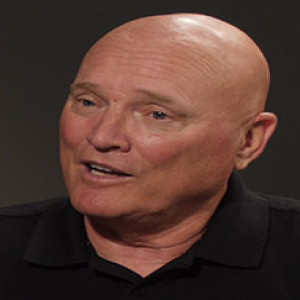
Thursday Sep 27, 2018
Lynn Mueller: Wastewater to the Rescue
Thursday Sep 27, 2018
Thursday Sep 27, 2018
Ep 208 Lynn Mueller
WasteWater to the Rescue
Imagine, if you will, a world in which waste water – yes, the stuff you drain out of your sink, shower, dishwasher and toilet – could provide you with the energy you need to power your home. It sounds like a line from The Twilight Zone, except for the fact that it’s real.
Enter SHARC, a Coquitlam-based company that is changing the way buildings around the world are utilizing what, until now, was considered wastewater. Reusing grey water, which is water from everywhere but the toilet, is one thing; repurposing all wastewater is another.
In North America, close to four hundred billion kilowatts-hours of energy a year goes down the drain. That works out to about $1,000 per household in just hot water. The average temperature of the collective wastewater from a home, around the world, is 23 degrees Celsius. The impediment to using all of the wastewater is solid waste: if only it could be cleaned, then the water would be usable as an energy source.
Now it can and, once clean, the water can be used in a series of heat exchangers, concentrated and then used to supply energy to heat houses. Once the cycle starts, the laws of thermodynamics kick in and the same energy gets used and reused.
We invited Lynn Mueller of SHARC Energy Systems to join us for a Conversation That Matters about how wastewater helps reduce our carbon footprint, reduces the massive volume of warm water that spills back into oceans and saves consumers money.
Simon Fraser University’s Centre for Dialogue presents Conversations That Matter. Join veteran Broadcaster Stuart McNish each week for an important and engaging Conversation about the issues shaping our future.
Please become a Patreon subscriber and support the production of this program, with a $1 pledge https://goo.gl/ypXyDs

